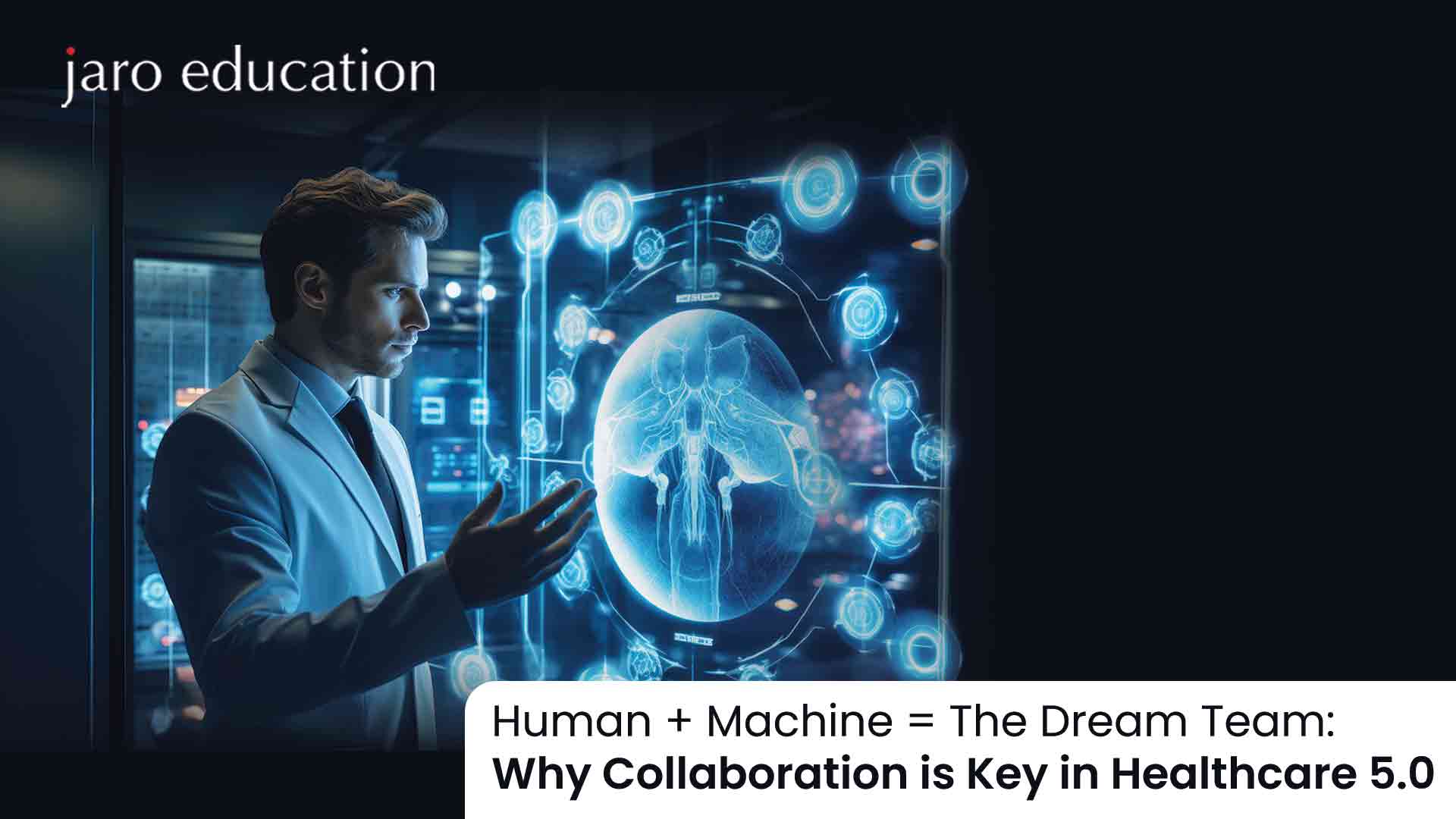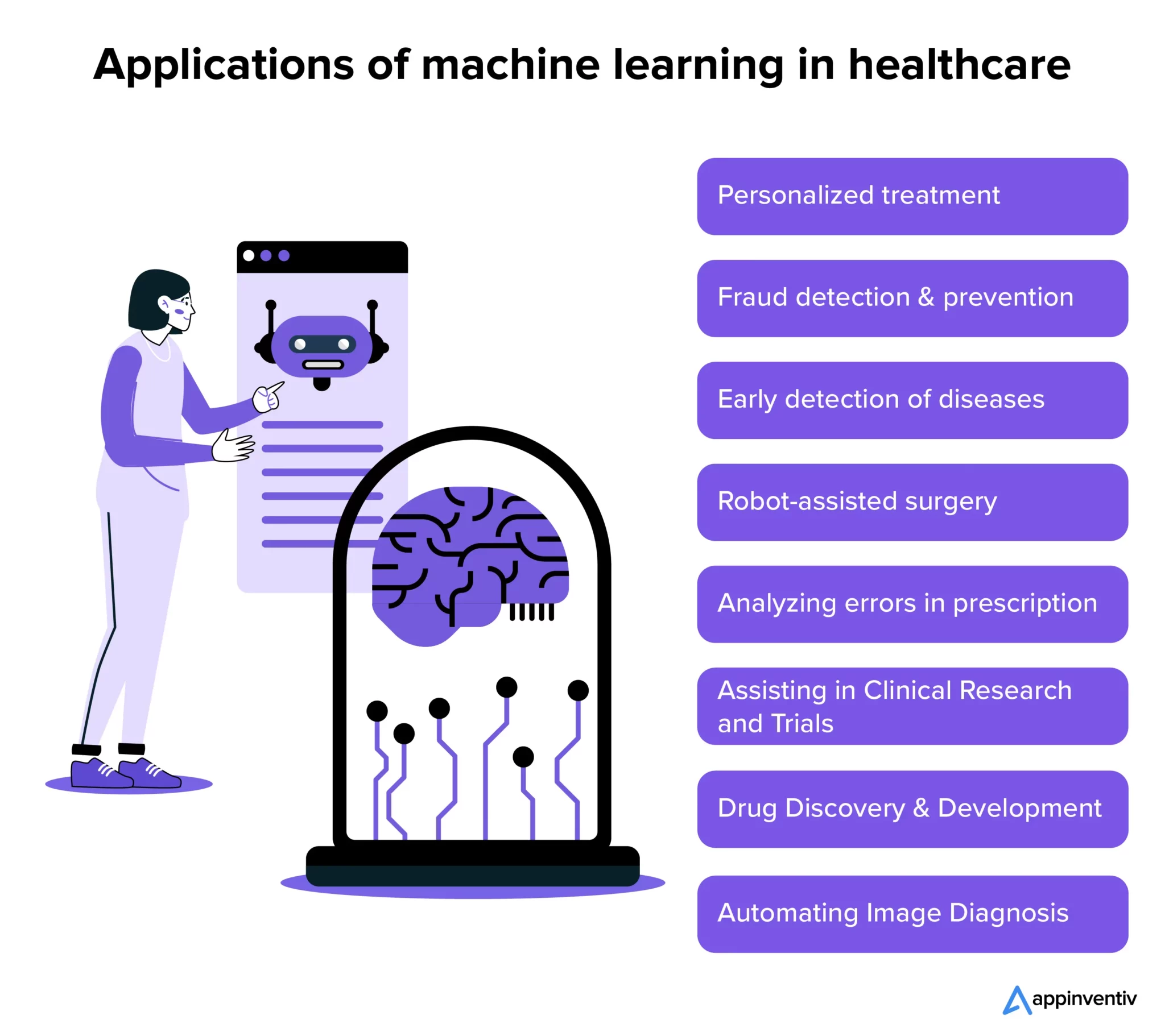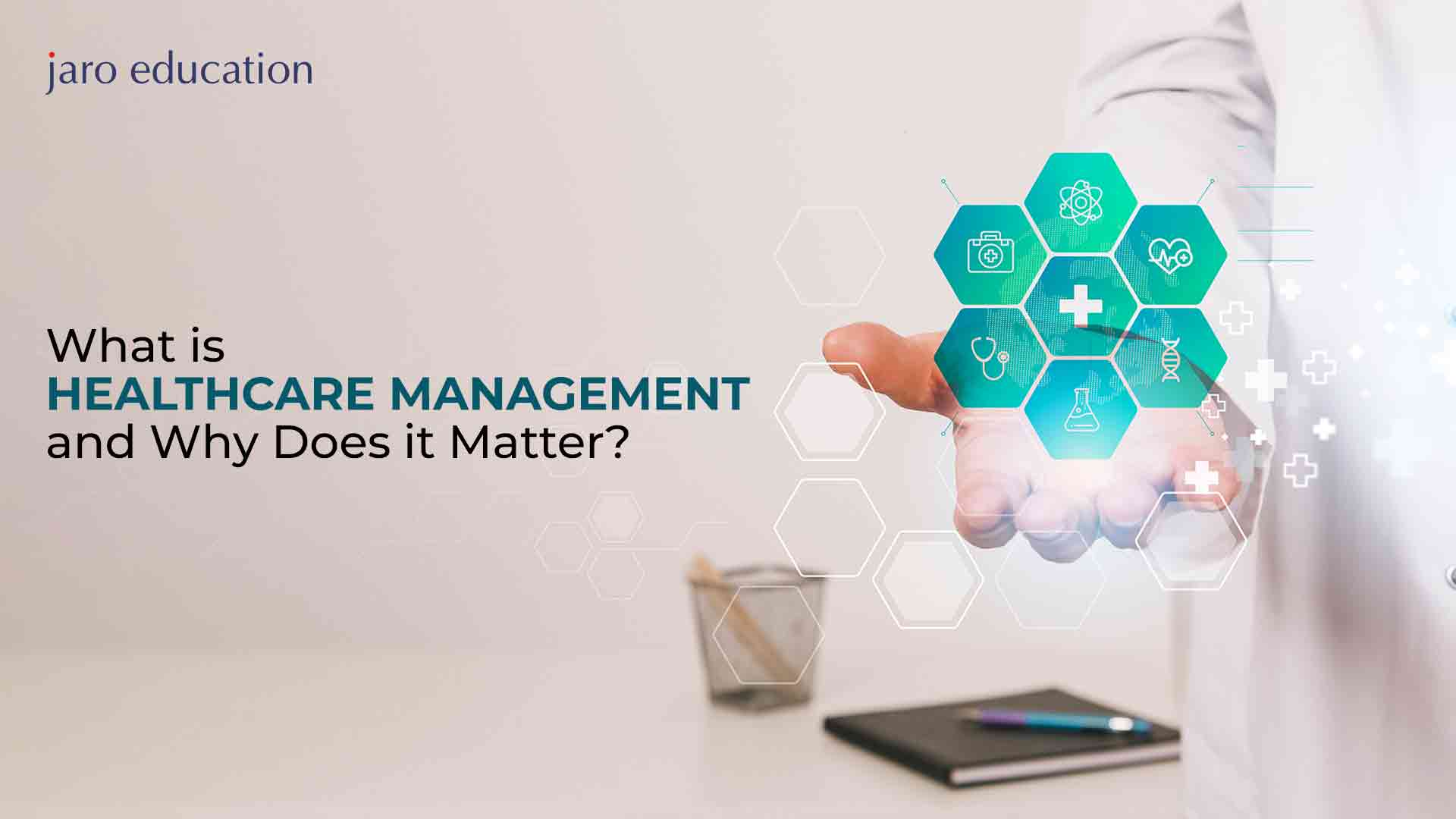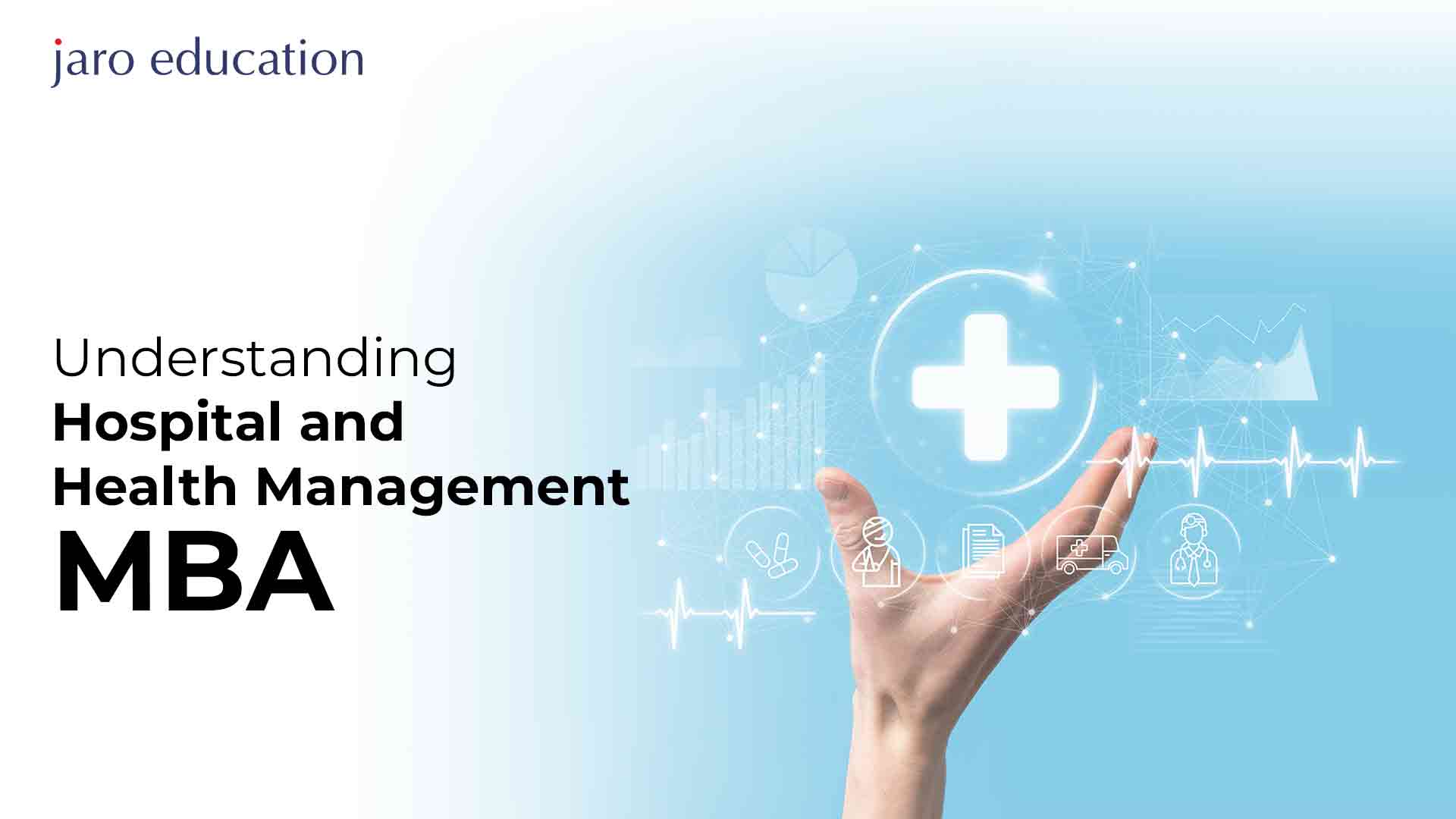
- jaro education
- 5, June 2024
- 6:06 pm
Technology never stops growing. When it comes to the healthcare sector, the intervention of such innovations with collaborative efforts of human resources is inevitable for positive patient outcomes. Humans + machines are both prime resources for empowering healthcare organizations. In the debate of human intelligence vs machine intelligence, neither gets additional points as both are necessary for handling the healthcare sector in an organized manner.
The future of the healthcare industry will be brighter only when human + machine coexist and work together. To understand the prime role of both humans and machines, let’s start by highlighting their individual roles in the field of healthcare and then finding out the benefits of their collaborative outputs.
How Do Humans Act as Pivotal Resources in the Healthcare Industry?
No one can take away how humans judge and critically analyze things with their unique skills. These aspects are essential for any industry to flourish. Humans have multi-dimensional roles in healthcare as well. In the context of human-machine collaboration in healthcare, humans play a crucial role in verifying and validating the outputs of AI and machine learning models, adding their knowledge and experience to enhance the accuracy and relevance of the insights generated by technology. They have added roles as described below.
Overseeing Automated Processes and Quality Control
Machines can perform repetitive tasks with remarkable precision, but human oversight is still necessary to ensure that quality standards are met and common-sense decisions are made. Experienced professionals can monitor automated processes, identify potential issues, and make adjustments to maintain the desired level of quality and efficiency.
Table of Contents
Creative Problem-Solving
Humans can think uniquely, see the more significant consequences, and devise innovative strategies and solutions. As manufacturing processes become more complex, this skill will become increasingly vital. Humans can analyze problems from multiple angles, draw insights from diverse sources, and develop creative solutions that machines may struggle to replicate.
Technical Troubleshooting
When automated systems experience errors or downtime, human technicians must diagnose the problems and perform necessary maintenance. Machines, no matter how advanced, cannot repair their internal issues. Skilled technicians with a deep understanding of the systems are essential for resolving technical issues and restoring operations.
Interpersonal Interactions
In industries such as healthcare, patients and clients will always value the human touch. While technology solutions have their place, human customer service representatives, account managers, and others remain essential, especially when dealing with sensitive or complex issues. The empathy, emotional intelligence, and personalized attention humans can provide are irreplaceable.

Tools Dominating the Healthcare Industry
Humans can take advantage of the following tools and make their healthcare setup highly productive.
Smart Devices
Smart wearable devices and remote digital visits are enabling continuous patient monitoring, earlier diagnosis, and more efficient follow-ups. These connected health devices transmit patient data to providers for analysis and diagnosis, promoting collaboration between humans and machines.
Artificial Intelligence
AI-powered tools are transforming healthcare by improving efficiency, reducing costs, and enhancing patient care. AI-powered care coordination platforms are also facilitating seamless communication and data-sharing among healthcare providers, leading to more informed decision-making and improved patient outcomes.
Cobot
Healthcare collaborative robots, also known as cobots, are machines used in the medical field to help providers with many tasks like paperwork, tests, patient care, and surgery. Tsinghua University made one to assist healthcare workers with virus testing.
Understanding the Growing Requirements of Machines and AI in the Healthcare Industry
Machines and AI are becoming indispensable parts of many healthcare facilities. Several notable facilities are using various technological assistance to assist humans in enhancing production and services.
Handling Repetitive Work
By tackling repetitive tasks like testing, product assembly, and others, cobots empower human workers to delve into tasks that demand problem-solving prowess, innovation, and judgment. As cobots handle mundane functions, workers can explore enriching opportunities as robot operators, programmers, and technicians, opening doors for career growth and innovation.
Enhancing Precise Production
The integration of AI-powered technologies is revolutionizing productivity and precision standards. Vision systems meticulously assess products, identifying minute defects overlooked by human inspectors. Automated guided vehicles streamline material logistics across workstations, enhancing workflow efficiency. Predictive analytics forecast future demands, facilitating on-time procurement and delivery.
New Job Options
In healthcare manufacturing, human-machine collaboration is reshaping roles. Despite potential job shifts, this partnership fosters innovation and creates fresh opportunities. Workers acquire advanced skills, preparing for future high-tech positions. As machines handle repetitive tasks, humans transition to more strategic roles, overseeing operations with greater fulfillment.
Advantages of Human + Machine Collaboration
Now, healthcare facilities are adapting to operations run by the positive partnership of machines and humans. Human intelligence vs machine intelligence is no longer a topic of discussion in many organizations as they are embracing the remarkable attributes of both to get positive results. Here are a few benefits healthcare organizations can savor by utilizing the prowess of human + machine.
Enhanced Productivity
Studies show that the partnership between machines and men can elevate productivity levels by 40%. That’s why workplaces are opting for AI and automation to tackle repetitive tasks. This situation is working in favor of humans, as they can focus on spending more time on complex matters. Individuals can brush their creativity, think outside the box, and add more value to their services.
Better Safety
Cobots are engineered to coexist with human workers in manufacturing settings. Equipped with sophisticated safety features, like collision detection, they pause automatically when humans approach, enhancing workplace safety. Furthermore, these machines can assume hazardous tasks, mitigating potential risks and ensuring the well-being of human operators.
Limited Errors
AI and robotics represent advanced technologies renowned for their precision and accuracy, making them well-suited for tasks demanding high levels of precision. Through human-AI collaboration, machines execute precise tasks while humans monitor quality and provide oversight. This partnership reduces errors and enhances overall quality.
Improved Worklife
Human-machine collaboration improves work-life balance by automating tasks, freeing up time for leisure, and reducing stress. It helps in managing time efficiently, enhances skills, and minimizes overtime, allowing individuals to enjoy more leisure and prioritize well-being.
How is the Human + Machine Collaboration Benefiting the Healthcare Sector in 2024?
Healthcare providers can position themselves more effectively for success in human-machine collaboration in 2024 and beyond by embracing innovative strategies and technologies.
Human-machine collaboration in the healthcare sector in 2024 is benefiting by bringing about significant improvements in productivity, reducing errors, enhancing safety, and improving the overall work experience.
By integrating AI tools like ChatGPT, healthcare companies are enhancing their service offerings, gaining market share, and optimizing staffing, anticipating problems, and personalizing patient care. The integration of AI, automation, and human collaboration is leading to a more efficient, patient-centric healthcare system. AI applications are expected to cut annual US healthcare costs by USD 150 billion in 2026 by shifting the healthcare model from reactive to proactive, focusing on health management. Additionally, AI is relieving administrative burdens, streamlining clinical workflows, enhancing patient communication, and transforming the patient experience.
The transformative potential of human + machine collaboration in healthcare is thus reshaping the industry, enhancing creativity, innovation, and problem-solving capabilities, ultimately augmenting human expertise and improving patient care delivery.
Final Thoughts
In Healthcare, the integration of human skills with machine capabilities stands as a crucial pillar. By uniting these strengths, we elevate patient care standards while upholding the essential quality of empathy. This symbiotic relationship ensures that as technology advances, the compassionate touch of human interaction remains central to healthcare delivery.
If you want to explore the healthcare sector and acquire valuable skills and knowledge on various important topics, including big data analytics in healthcare, pharmaceuticals and drug delivery, corporate responsibility in healthcare, and more, enroll for the Executive Programme in Healthcare for Industry 5.0 offered by CEP, IIT Delhi. This is a unique 6 months course that enables you to interact with the eminent faculty of IIT Delhi through live interaction sessions. The learning sessions are case-study driven and ensure you get real-world insight and understanding to prepare better for greater professional roles in the field. You will also get the opportunity of peer-to-peer networking. Choose this course and get ready to accelerate your career in the healthcare sector.









